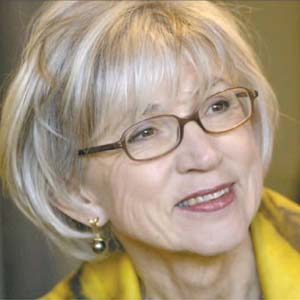 |
| Chief Justice Beverley McLachlin. |
Chief Justice Beverley McLachlin’s first encounter with mental illness came early in her legal career. While working as an articling student in Edmonton, she received a phone call from a desperate young woman who was wrongly declared insane and placed in a mental institution. “I got her out but it made me wonder how many other women were trapped,” she said. “I’m glad we moved away from that system.”
Tackling the legal system was one of the many topics discussed during the Dr. Saul Green Memorial Lecture. The Right Honourable Chief Justice Beverley McLachlin spoke to a packed audience about the challenges facing the mentally ill in the justice system.
Mental illness is a growing problem in our society. One in five Canadians will suffer from mental illness or severe depression during their lifetime. An estimated 50 per cent of prisoners in jail have anti-social personality disorder. With little resources from the health community, the result is the mentally ill disproportionally represented in the criminal justice system. The majority of mental health patients who don’t commit crimes also face discrimination.
Right to refuse
The system has drastically changed since the chief justice began practicing law 40 years ago. In the old system, people who were found not guilty due to insanity were institutionalized. The Charter of Rights and Freedoms, enacted in 1982, ensured a person’s right to liberty and helped end automatic confinement. Now defendants found not criminally responsible under section 20 of the Criminal Code are sent to review boards where they receive access to psychiatric help. “The focus is what is the best outcome for the person,” says Justice McLachlin. “The system provides a humane way to deal with these issues and give adequate protection to the public.”
The major issue in mental health law involves a person’s right to refuse treatment. While the Charter protects an individual’s right to freedom, a person whose cognitive thinking skills are effected by illness may not be able to make healthcare decisions. “Liberty can be curtailed only in exceptional cases to prevent harm,” she says. “We haven’t found a consensus yet on how to deal with this issue.”
Lawyers and psychiatrists are working on new ways to help the mentally ill. Mental health courts have been set up in Halifax, Toronto and Ottawa. In Vancouver, the police, health care workers and probation officers work together in monitoring patients.
“We can’t ignore the problem,” says Justice McLachlin. “Laws can’t heal people but it can provide a regulatory environment to help medical professionals reach patients. The challenge for us is to work together.”
